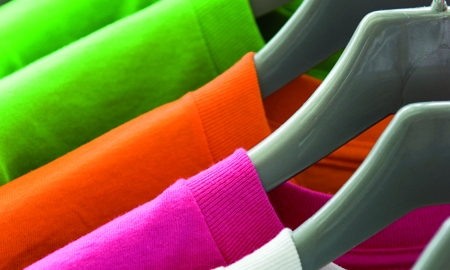Pick up a towel, bed linen or a tablecloth in Tesco or Marks & Spencer nowadays and there is a good chance the tag will read: ‘Made in Bangladesh’. The country is well known for its massive garment and apparel factories that produce clothing for some of Europe’s top high-street retailers, but now it is flourishing in the home textiles industry also.
With a shortfall in production in China and Pakistan, the traditional powerhouses of home textiles manufacturing, Bangladesh has taken full advantage. The industry has grown 20 per cent year-on-year as more and more buyers and producers shift from Pakistan and China to Bangladesh. During the fiscal year 2011-12, exports of home textile were valued at around $1 billion and judging from the rate of growth, insiders believe that figure could rise above $2 billion in the next three years.
“Home textiles were always owned by Pakistan,” says Masood Dawood Akbani, a British expatriate who came to Bangladesh in 1988. He is Managing Director of
ACS Textiles, one of Bangladesh’s leading home textile producers and a 100 per cent British-owned company.
“We have got a winning market share because our people have worked very hard,” he says. “R&D is very strong, and our quality level is much stronger than Pakistan. If you go to Marks & Spencer, you will see more designs from Bangladesh than Pakistan.”
Data released by The Export Promotion Bureau of Bangladesh reveals that the value of exports of home textiles was $554.6 million in 2011 – a staggering 97.7 per cent increase on the year prior. With heightened demand, the country’s home textiles manufacturers have had to step up production. Mr Akbani says he has already expanded the production capacity to serve the increased demand from buyers.
ACS – which supplies large British and Irish retailers such as Tesco, Marks & Spencer, Shaw’s and Dunnes Stores – employs 6,000 people and manufactures around 30,000 pieces of quality textile products per day. These products are then shipped to Europe, North America, Japan and Australia. Its product range includes duvets, sheets and towels and its manufacturing processes are compliant with ISO 9001: 2008 standards.
The 550,000-square-foot manufacturing facility at ACS employs 6,000 people and uses state-of-the-art manufacturing processes, with weaving, dying, printing, finishing and packing services that are the largest of their kind in Bangladesh. It also has a laboratory where they conduct extensive research and development.
Mr Akbani says that the phenomenal increase in the value of exports has mainly been due to the increases in prices that buyers are paying because of the price hike of raw materials such as raw cotton and yarn.
“In some cases, the buyers are already paying 50 per cent more for home textiles," he says. The combination of higher demand and increased prices has meant higher turnover for ACS. In 2011 its turnover increased 33 per cent to 80 million.
“We do not distribute products in Bangladesh – 100 per cent of the products are exported. We export about 15 per cent to the UK and the remaining 85 per cent to Australia, Japan, Canada, Holland, Germany, France, amongst others. We have got about 55 retail customers,” says Mr Akbani. The year 2008 saw ACS expanding its export clientele to include North America as well. The home textiles firm has won the National Export Trophy twice, in 2009 and 2010, and Mr Akbani was named a CIP (Commercially Important Person) for his outstanding export performance.

0 COMMENTS